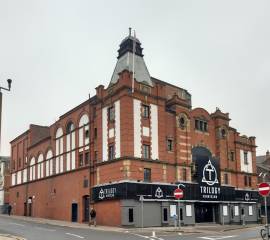The future is Foster's unless we act - says columnist Roger Protz

A leaflet the size of a tabloid newspaper, printed in full colour, fell out of my local free sheet last week.
It was from the supermarket group Budgens and announced the "best ever summer deals".
The offers for beer were astonishing. They reinforced the points made by John Ellis of the Crown Inn in Shropshire in a letter to the MA last week.
He complained that big brewers are dumping cut-price lager on supermarkets to the detriment of pubs.
He's right. Consider the following offers in Budgens: 10 x 250ml bottles of Stella Artois for £5.99;
20 x 300ml bottles of Kronenbourg for £10.99; and 12 x 440ml cans of Foster's for £7.49.
The leaflet explains that these prices are the equivalent of £2.40 per litre for Stella, £1.83 per litre for Kronenbourg and £1.42 per litre for Foster's.
It's a common mistake to assume that a litre is "just a bit more than a pint". In fact, a litre is the equivalent of 1¾ pints.
There isn't a pub in the land where you could buy almost two pints of premium lager for £1.42.
The annual prices survey, produced by the Campaign for Real Ale (Camra), shows the average price of a pint of lager is now £2.45. In London and the South-East the average price is £2.61. The figures are stark: a pint of lager in a South-East pub will cost only 20p less than a litre - almost twice as much - bought from a supermarket.
Is it any wonder that pubs are losing business to the take-home trade? I prefer to drink in pubs because I like them and I prefer draught cask beer. But I freely admit to being a member of a small minority. Most drinkers vote with
their wallets: if a case of what John Ellis calls "rubbish beer" is available at give-away prices, then most
people will follow the cheap alternative if all they want is a cold liquid rather than a memorable drinking experience.
How can beer be sold so cheaply?
I went to the fountainhead, a former chief beer buyer for a major supermarket chain. The answer is simple, he says: the global brewers make zillions of pounds from supermarket sales. The profit per bottle or can may be marginal but the pennies add up when so much beer is being shifted.
My informant added that a few years ago two-for-one deals were unheard of, but now they are commonplace. In his opinion, there is one too many global brewers operating in Britain and, as a result, the battle for shelf space is ruthless.
The brewers offer massive incentives to retailers to stock their beers.
The brewers help pay for promotions, which explains the expensive full-colour tabloid on glossy paper I received from Budgens. Targets are set for how much beer a particular store will sell in a year. Managers will be rewarded if they meet or exceed their targets.
John Ellis made the barbed point in his letter that cheap, almost give-away supermarket beer sits oddly with the Government's demand for "responsible drinking". The pub trade responded by agreeing - rightly - to cut out happy hours and other cheap booze periods.
But it's happy hour every day of the week in my local Budgens, Morrisons, Tesco and Sainsbury's. People more interested in getting tanked up than in enjoying the delightful aroma of Goldings hops on a pint of Old Jockstrap can do so courtesy of the cut-price global brewers.
Of course, the Government only pays lip service to the notion of responsible drinking. The bean counters at the Treasury will monitor the duty payable on cheap supermarket beer and crack open a few bottles of Lambrusco with the proceeds.
How can the playing field be tilted back towards the pub? As the MA's editorial said last week, by the giant pubcos passing on the benefits of the discounts they get from brewers to their tenants. And by the Government taking seriously the call from the Society of Independent Brewers (Siba), to reduce the duty on beer sold in community and rural pubs.
Unless these demands are taken up, more pubs will close and the future will be Foster's.














